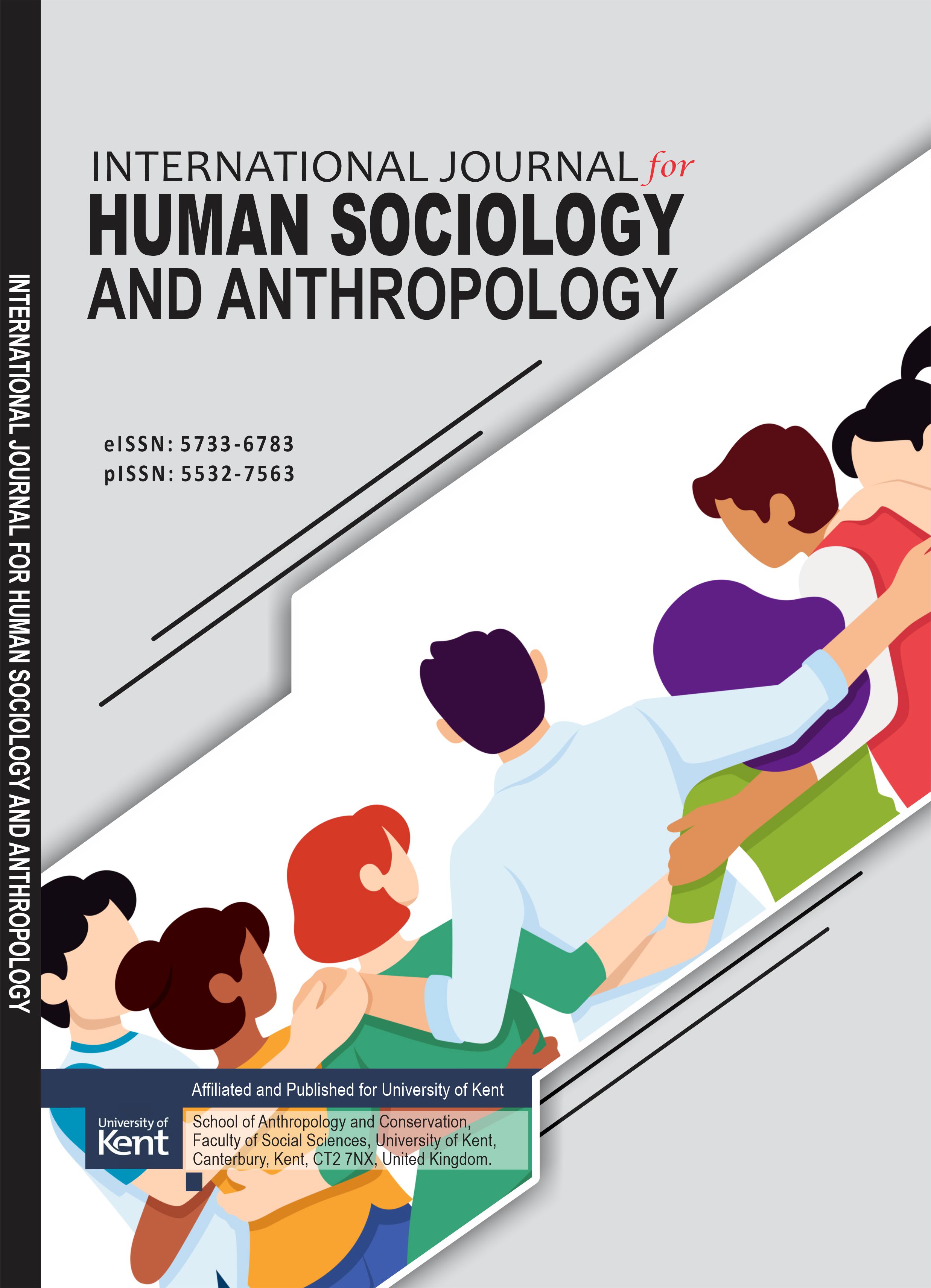INTERNATIONAL JOURNAL FOR HUMAN SOCIOLOGY AND ANTHROPOLOGY (IJHSA)
THE KNOWLEDGE, ATTITUDES AND PERCEPTIONS TOWARDS THE ADVERSE EFFECTS OF MOBILE PHONES AS INDUCERS OF PORNOGRAPHY AMONG STUDENTS IN A PRIVATE UNIVERSITY IN NIGERIA
E-ISSN: 5733-6783
P-ISSN: 5532-7563
DOI: https://iigdpublishers.com/article/903
This study investigates the knowledge, attitudes, and perceptions of Babcock University students toward the adverse effects of mobile phones as inducers of pornography, adopting a social work perspective. Using a quantitative research design, a structured questionnaire was administered to 387 undergraduate students selected through multistage random sampling. Data were analyzed using SPSS, with descriptive statistics such as frequency distribution and percentages employed to interpret the findings. The results revealed that 67.9% of respondents aged 19-21, with 78.6% male and 21.4% female. Students demonstrated high awareness of pornography's negative effects, with a weighted average mean score of 4.22924, acknowledging its easy access via mobile phones (mean score: 4.1906) and its role in the sexual relationship with women (mean score: 4.1253). Despite this awareness, students held permissive attitudes, with 78.3% agreeing that viewing pornography on mobile phones is morally acceptable, and 83.5% recognizing its alarming consumption rate. Students perceived pornography as harmful to their psychological, social, and academic well-being (weighted average mean score: 3.83392), with 78% agreeing to its negative impacts on mental health and 76.2% noting its harms to social relationships. Factors such as accidental exposure (mean score: 3.5796) and sexualized ads (mean score: 3.8172) were identified as key contributors to continued engagement. Students favored educational programs (mean score: 3.6475) and counseling services (mean score: 3.2402) over stricter mobile phone policies (mean score: 2.6501) to address the issue. The study highlights the need for targeted interventions, including education, counseling, and technology-based solutions, to promote responsible digital behavior. Further research is recommended to explore qualitative insights and broader societal influences.
Binuyo Biodun A., Ginigeme Raluchi, David Maya Kate & Adesanya Ocheze Happinesss
Ajayi, T., & Ojo, M. (2021). Attitudes towards pornography in faith-based universities: A case study of Babcock University. Nigerian Journal of Educational Research, 10(3), 112–125.
Babalola, S., & Adeyemi, K. (2023). Mobile phone usage and pornography access among students in Nigerian universities. African Journal of Social Sciences, 18(1), 78–92.
Bandura, A. (1986). Social foundations of thought and action: A social cognitive theory. Prentice-Hall.
Davies, M., Gilston, J., & Rogers, P. (2012). Examining the relationship between male rape myth acceptance, female rape myth acceptance, victim blame, homophobia, gender roles, and ambivalent sexism. Journal of Interpersonal Violence. Available via University of Brighton Research Repository.
Eze, C., Okonkwo, E., & Nwankwo, I. (2020). Perceptions of pornography among Nigerian university students: Implications for mental health. Journal of African Psychology, 12(4), 200–215.
